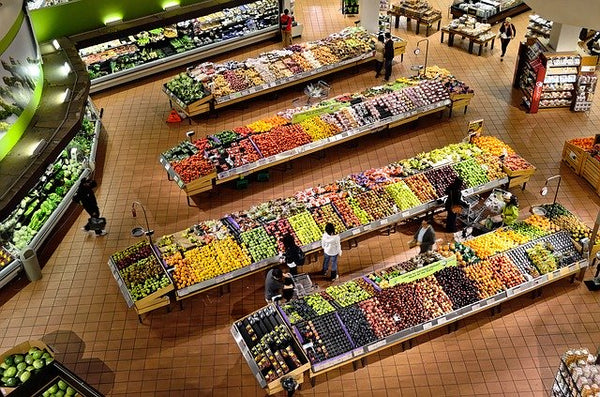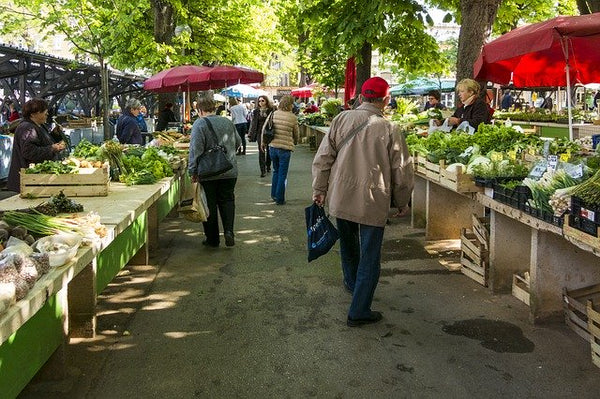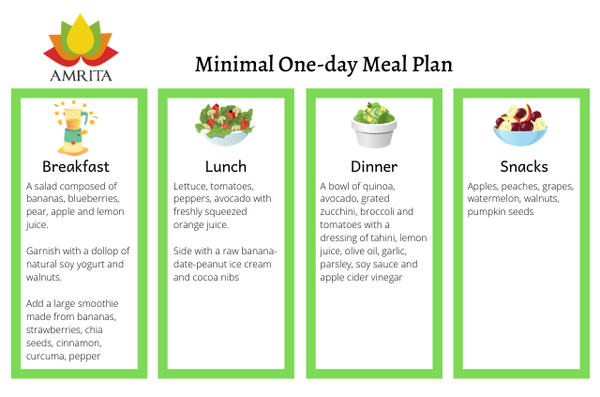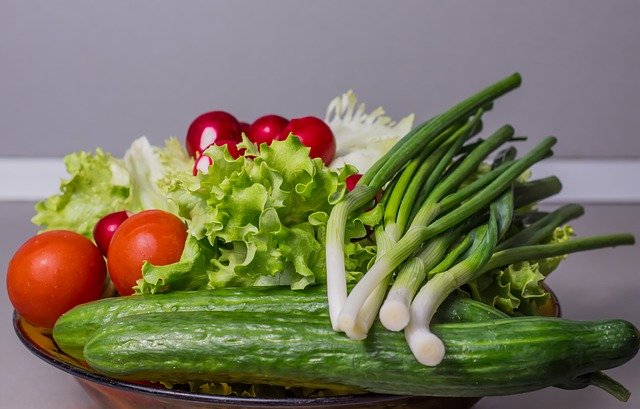Table of Contents
What is Minimalist Eating?
No--minimalist eating doesn’t mean eating only rice and beans everyday.
And no--simplifying your meals is not expensive and time-consuming.
Minimalist eating is not about eating less. It’s about being aware of what your body needs and eliminating everything that is not.
In this age of self-optimization, many people pursue one major goal: to get the best out of themselves and their body.
However, many people also become bombarded by new insights or new diet concepts that don’t really help but only add confusion.
We use different apps to monitor our calories. Push nutrients back and forth--less fat, more proteins, less carbs.
We are lured by different “healthy” products in supermarkets that ALL promise positive results.
We desperately look for the best sugar substitute and sign up for a gym membership but despise going.
We can break free from all these complexity by simplification.
Minimalism is exactly that.

4 Benefits of a Minimalist Diet
Live cheaper.
A minimalist diet is all about preparing food yourself. Eating in restaurants or takeaways cost more money and the quality of ingredients are not always guaranteed.
Minimalist recipes are simple and require only a few ingredients. Try making a tomato soup with lentils and buckwheat or a spinach-chickpea curry.
Or create your own meal with a maximum of five ingredients. See what you can do with oatmeal, berries, hazelnuts, cinnamon and water or from potatoes, pumpkin, yellow lentils, chili and vegetable broth.
Buying high-quality vegan or plant-based foods in the weekly farmer’s market or in organic stores may sound expensive but it is NOT.
On the contrary you can save a lot of money with a simple diet. Here's why:
- Many plant-based foods are cheaper than animal-based ones.
- You buy only the right portions for you.
- You get all nutrients, so you no longer have food cravings and eat excessively.
- You don't need expensive cookbooks or special kitchen equipment.
- You can pre-cook and stock them in your fridge. Much cheaper than buying fast food and eating in restaurants.

Live healthier.
By preparing your own food, you have the responsibility for your own nutrition. You know you are getting the best nutrients.
Processed and convenient food and dishes contain too much salt, fat, sugar and various additives.
You can find clean, simple good food in every (organic) supermarket or in pop up shops at your weekly farmer’s markets.
Being a minimalist is using as much whole foods as possible. You don’t need to completely remove all processed foods from your diet. But animal, alcohol, fast food should be enjoyed in moderation.
Live more sustainably.
Minimalist nutrition is good for the environment and the climate because only 30% of the greenhouse gas emissions are caused by plant-based foods.
While the remaining 70% are caused by the production of meat, milk, cheese and eggs.
And since sustainability and environmental protection play an important role in minimalism, food should be regional and seasonal as much as possible.
Sustainable shopping is buying fresh instead of processed products. Each processing step means additional travel miles for that product to reach the market.
Live for more important things.
A minimalist diet doesn’t require a lot of time to prepare for. You don't need to stand in the kitchen for a long time.
You don't need to wander aimlessly in supermarkets looking for the perfect “healthy” product or go to different health food stores or delicatessens to get your veggie fix for the week.
A big hurdle to a healthy diet is often the misconception that it is complicated and time-consuming to prepare everyday.
But a salad, smoothie, a breakfast porridge or even a delicious vegetable pan can be prepared in no time at all!
And if you pre-cook for the rest of the week, you can save more time which you can choose to spend with your family, friends or simply by yourself.
Get Started in Minimalist Cooking
1 Plan and pre-cook your meals
Sounds daunting, doesn't it? Well, this can be a real everyday helper and saver of time!
Through planning you will avoid impulsive purchases and you don’t have to worry about what you’re going to prepare for the next day.
Schedule a day in which you plan your meals for the week and shop for your ingredients; and set a day to prepare them.
Store prepared dishes in the fridge or freeze them if necessary.
Try this until it becomes your routine! For example, set every Saturday as your meal planning and shopping day and Sunday as your meal preparation day.
Here are some staples of a minimalist diet:
- Rice and cereals like quinoa or millet for a quick porridge or a vegetable and rice pan
- Chickpeas roasted in the oven make a perfect snack
- Lentils for a protein-rich salad or a creamy soup
- Seeds, kernels, nuts and dried fruit as a topping or muesli ingredient
- Oatmeal and plant drink for smoothies or muesli
- Frozen bananas, blueberries, strawberries, raspberries and spinach also for smoothies
- Coconut milk for soups and quick curries
- Your chosen spices to refine
- High quality oils for frying or as salad oil
Try this one-day minimalist meal plan!

2 Cook with few ingredients
Keep it simple! A healthy, colorful and fresh dish doesn’t need complicated preparation steps.
A quick salad, simple oven-cooked vegetables or a warm soup are the best examples of how healthy cuisine is anything but complicated.
The less ingredients there are, the easier it is to prepare! Minimalist recipes save time and are just as delicious!
You don't have to be a good cook, you just need a few simple and tasty recipes that you can conjure up again and again.
When you get into the habit of eating lots of fresh fruits and vegetables everyday, you have achieved a stress-free, simple and minimalist diet!
Here are some delicious minimalist recipes to start you off:
- Quinoa Breakfast Bowl
- Thai Red Curry Lentils
- Apple & Spinach Green Smoothie
- Chickpea Avocado Pasta
- Sesame Kale Salad with Almond Slivers
- Veggie Noodles with Sunflower Butter Dressing
3 Maintain a minimalist kitchen
Before you go on minimalist shopping and preparation, first inspect your kitchen, your cupboards and your fridge.
More often than not, our cupboards are full of different spices, preserves, pasta packs and much more in the fridge.
In a minimalist diet, you don't need any special ingredients, spices or equipment.
Tidy up your kitchen and use up or give away those you won’t need.
At any rate, cooking is quicker and more fun in a minimalist kitchen with lots of free space.

Simplify. Eat. Save.
It’s not difficult to eat healthy and balanced with a minimalist preparation. No flavor enhancers or preservatives are necessary.
You’ll soon realize over time that when eating, the simple things are still the best.
However, you don't have to adapt to the minimalist lifestyle but you can certainly implement a few suggestions into your daily life. This will make your shopping much less stressful and your diet healthier!
What are your tips for a quick, healthy minimalist diet or kitchen?
What challenges have you encountered that hold you back from cooking fresh food more often?
Related Articles:
Beginner's Guide to Plant-based Keto Diet in 2020
Going Gluten Free Guide: 5 Things You Should Do to Simplify Transition
The Ultimate Paleo Diet Guide for Vegans, Vegetarians & Plant-based
Mediterranean, Keto, Paleo, IF, DASH: What to try?

